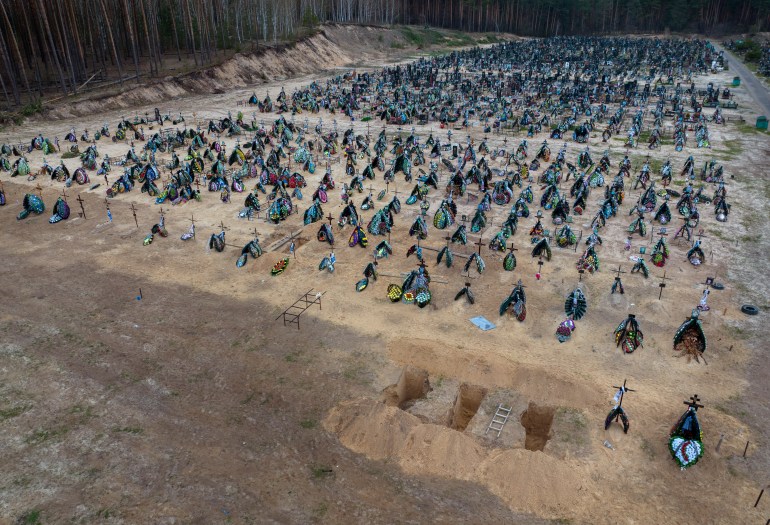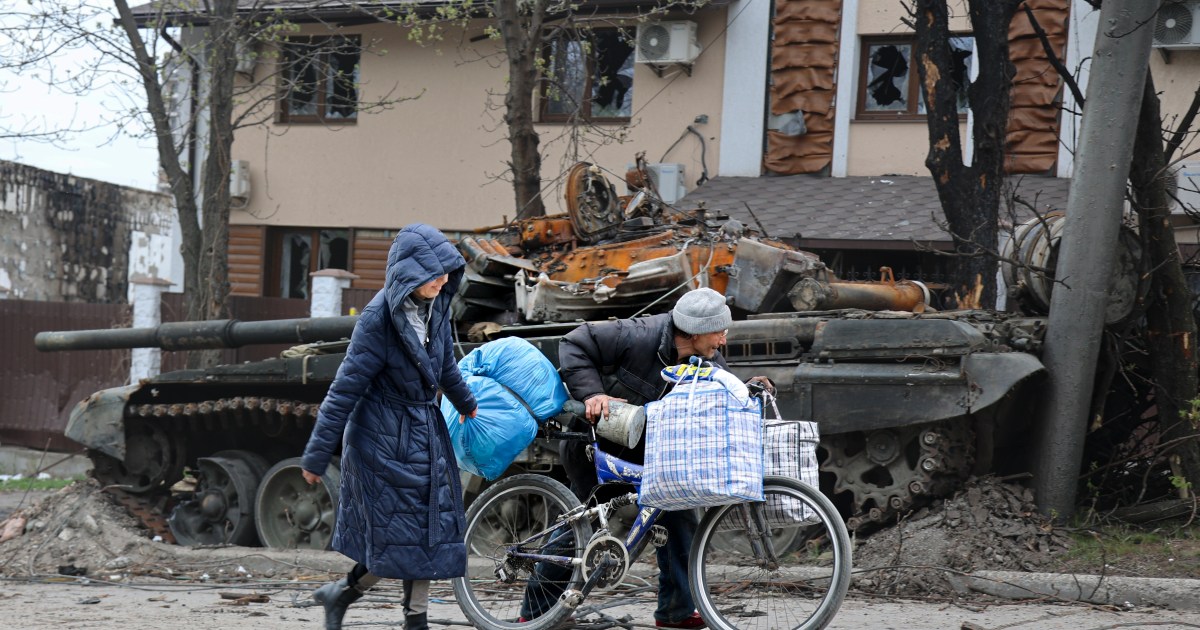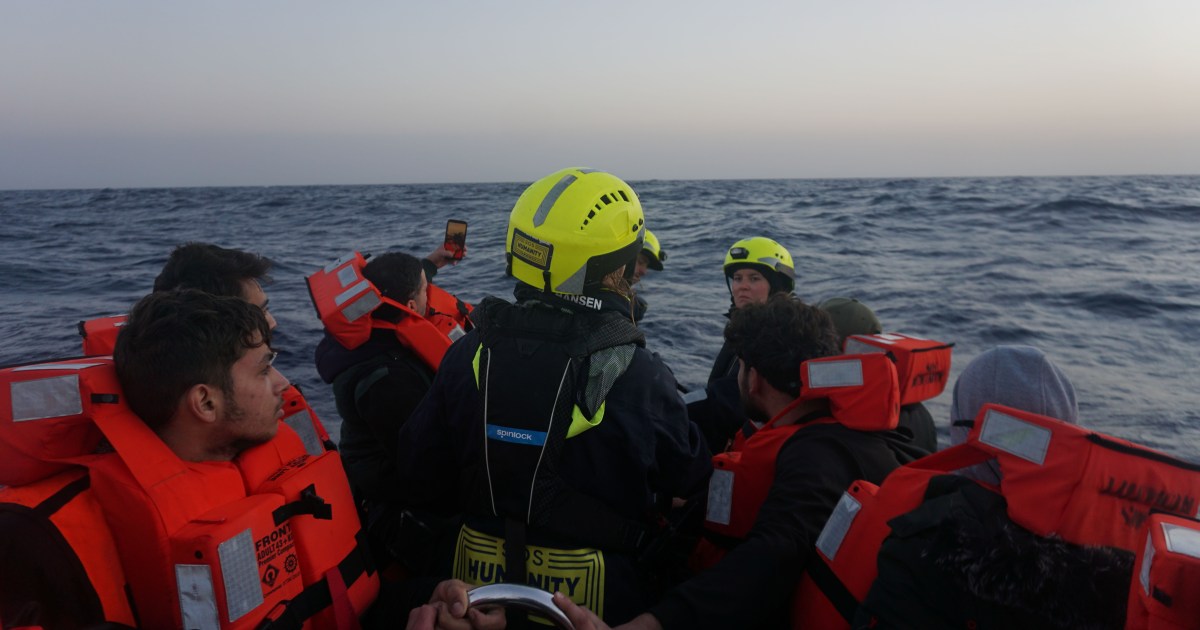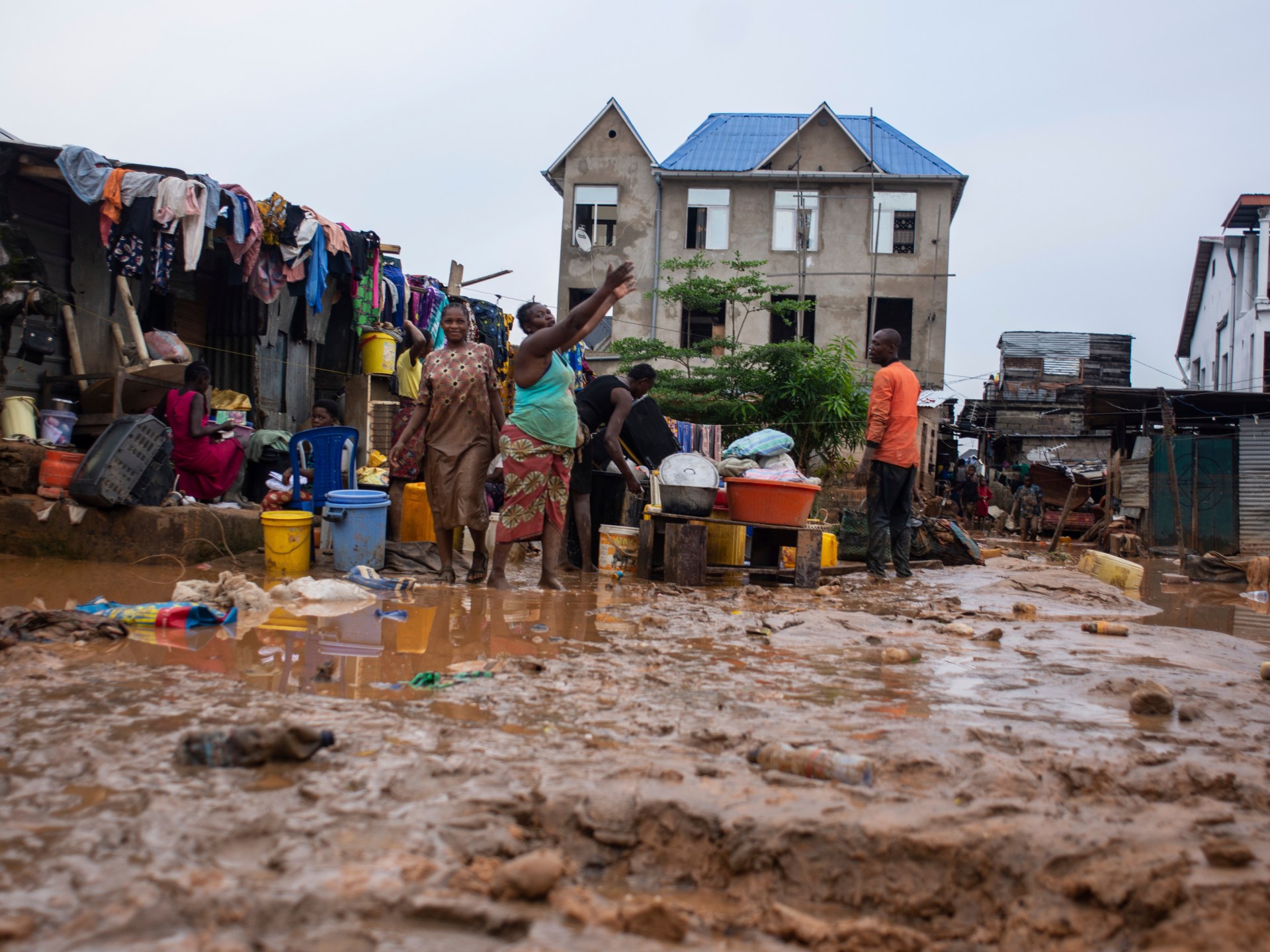UN urges pause in fighting in Ukraine during Orthodox Easter
Antonio Guterres, the secretary-general of the United Nations, has appealed for a four-day truce during the Orthodox Holy Week to allow for civilian evacuations and the delivery of humanitarian aid.
Speaking to reporters on Tuesday, the UN chief noted that the Orthodox Easter is coming amid an intensifying Russian offensive in eastern Ukraine, making the need for a ceasefire all the more urgent.
“Humanitarian needs are dire. People do not have food, water, supplies to treat the sick or wounded or simply to live day-to-day,” Guterres said in New York.
“Inspired by the Holy Week, I urge all parties, and all champions of peace around the world, to join my Easter appeal.
“Save lives. Stop the bloodshed and destruction.”
I am calling for an Orthodox Holy Week humanitarian pause to the war in Ukraine.
I urge all parties – and all champions of peace around the world — to join my Easter appeal.
Save lives.
Stop the bloodshed and destruction.
Open a window for dialogue and peace. pic.twitter.com/drEWHcExnl
— António Guterres (@antonioguterres) April 19, 2022
He suggested the pause begin on Thursday, which is Holy Thursday for Orthodox Christians, and continue until Sunday when Orthodox Christians celebrate Easter.
Most people in Ukraine are Orthodox Christian.
“Instead of celebration of a new life, this Easter coincides with a Russian offensive in eastern Ukraine. The intense concentration of forces and firepower makes this battle inevitably more violent, bloody and destructive,” he noted.
“The onslaught and terrible toll on civilians we have seen so far could pale in comparison to the horror that lies ahead.”
Guterres said the goal of the four-day truce is to open “humanitarian corridors” so civilians can escape embattled areas and more humanitarian convoys can get in, particularly to Donetsk, Luhansk and Mariupol in the eastern region known as the Donbas – the focus of Russia’s current offensive – and Kherson in the south.
More than 4 million people in those areas, and 12 million nationwide, need food, water, medicine or other assistance.
‘Sceptical’
Ukraine immediately called on Russia to heed Guterres’s call, but an envoy from Moscow said he was “a bit sceptical” about the idea.
“I really don’t know what’s the point of entering in the game with Ukrainians on such issues,” said Dmitry Polyanskiy, Russia’s deputy ambassador to the UN.
He claimed that Russia had offered to create humanitarian corridors but that Ukraine did not use them or had misused them.
Ukraine has also repeatedly accused Russia of hindering efforts to create such safe routes and of ceasefire violations that prevent their implementation. Ukraine’s President Volodymyr Zelenskyy accused Russian forces on Tuesday of “blocking any attempts to organise a humanitarian corridor and save people” in the besieged port city of Mariupol.
Guterres said the UN’s humanitarian envoy, Martin Griffiths, has broached the idea of a truce over Orthodox Easter with the Ukrainian Council of Churches and Religious Organisations, an interfaith group.
“The four-day Easter period should be a moment to unite around saving lives and furthering dialogue to end the suffering in Ukraine,” the UN chief said.

His proposal came after the UN recently helped to foster a two-month truce in Yemen’s civil war. The truce took effect as the Muslim holy month of Ramadan began.
The UN let Russia and Ukraine know before Guterres went public with his appeal on Tuesday, Spokesperson Stephane Dujarric said.
As for its prospects, “We are always hopeful,” he said.
Mexico, France, the United Kingdom and some other UN Security Council members embraced the proposal later on Tuesday at a meeting focused on the 12 million people who have fled their homes during the war.
About 5 million have gone to other countries, and the rest to different areas within Ukraine.
The UN says it has helped more than 2.5 million people in Ukraine so far, including some who were displaced from other parts of the country. The organisation is also helping refugees who fled across borders.
But “no pile of blankets, no sum of cash, no amount of medicine, is going to halt the death and destruction,” said Kelly Clements, the UN’s deputy high commissioner for refugees.
“So while we will continue our job to deliver aid, we need this council to do its job, too,” she said, calling on members “to put aside your differences and find a way to end this horrific and senseless war”.




